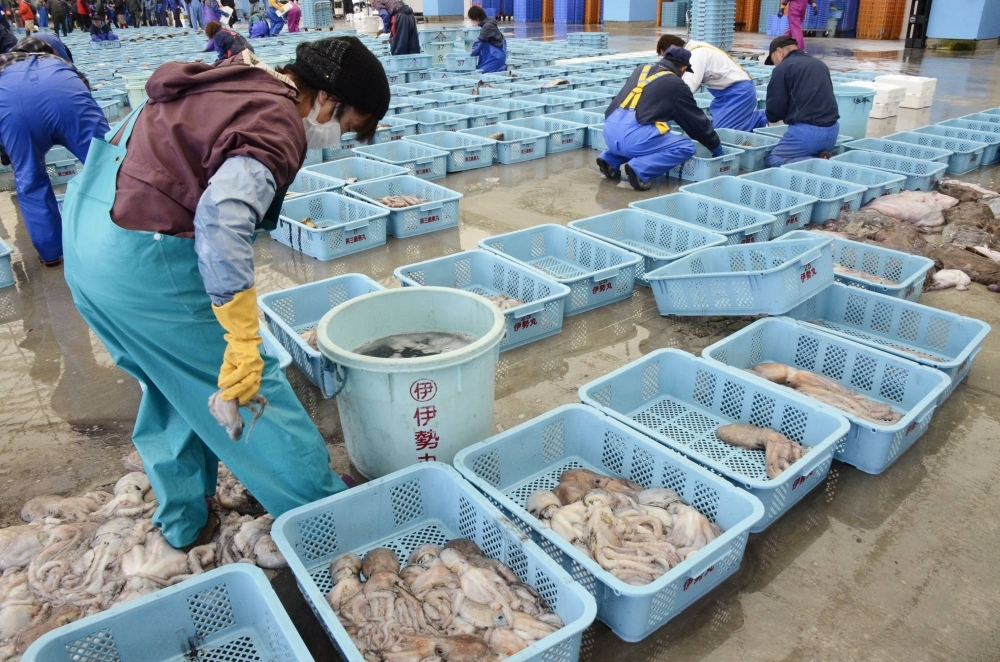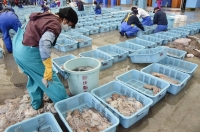Switzerland and Liechtenstein on Tuesday lifted import restrictions on food products from 10 Japanese prefectures imposed after the 2011 Fukushima nuclear plant disaster, the Japanese government has said.
Following a similar move by the European Union earlier this month, the two countries will no longer require radiation tests on some agricultural and fishery products from the prefectures, which include Fukushima. Switzerland and Liechtenstein are not EU members.
With two more countries dropping the measures, the number of countries and regions imposing import restrictions on Japanese food products will be seven, with China and South Korea still on the list. As many as 55 had restrictions in place at one stage.
The removal of requirements for Japan to test for radionuclides and provide safety certification for some products is expected to alleviate the administrative burden on producers and exporters in Fukushima, as well as those in the nine other affected prefectures of Miyagi, Yamagata, Ibaraki, Gunma, Niigata, Yamanashi, Nagano, Iwate and Shizuoka.
As other non-EU members Norway and Iceland also lifted similar import curbs along with the 27-nation European bloc on Aug. 3, all members of the European Free Trade Association have now eliminated the measures.
Following the moves by European countries, Japan's Agriculture, Forestry and Fisheries Ministry plans to set up a new export support platform in Brussels to provide information to producers. In September, the ministry plans to hold an on-site event to promote Japanese foods, including those produced in Fukushima, aiming to boost exports.
China remains opposed to Tokyo's plans to release treated radioactive water from the Fukushima plant from late August onwards and has strengthened its radiation testing of Japanese seafood imports.
The United States, Israel and Singapore lifted all post-Fukushima import restrictions on Japanese food products in 2021, while the U.K. and Indonesia lifted theirs in 2022.




